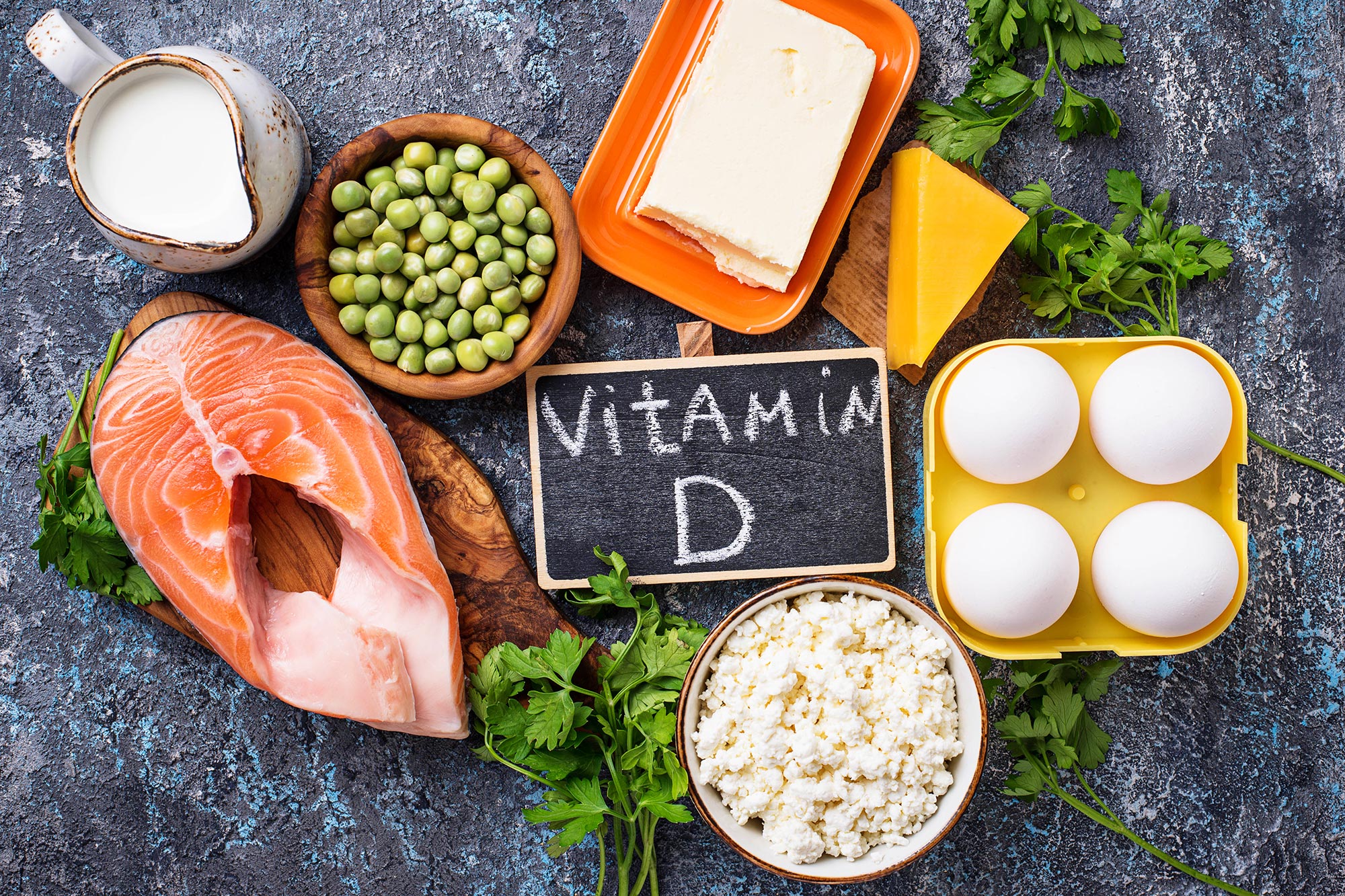
Foods rich in vitamin D.
Nutritional advice comes from every corner of our world. Between doctors, well-meaning family members and friends, and the all-pervasive impact of social media, we are bombarded with tips on how to add more protein, fiber, and healthy fats to our everyday menu. To top it all off, we are encouraged to throw in a multi-vitamin for good measure to fill in any gaps in our diet.
The subject of popping a pill in order to get the recommended daily allowance of the various vitamins essential to overall good health may be somewhat controversial. After all, different nutrients may be absorbed at different rates by our bodies. Surely we shouldn’t expect one small pill to cover it all. Still, it pays to understand the role many vitamins play in staying healthy.
One vitamin that is crucial to good health in so many ways, yet is too often taken for granted, is vitamin D. Commonly known as the “sunshine vitamin,” vitamin D is often associated with exposure to sunlight. As such, it can be easy to get lulled into the misconception that Mother Nature is taking care of this aspect of our balanced nutrition.
While sunlight exposure is beneficial, not everyone benefits from the sun at the same level. Sun exposure near the equator is far different than the amount of sun an Eskimo might receive at the North Pole. Darker skin also absorbs less vitamin D than paler skin. Even in sun-rich areas of the world, people tend to spend much more time indoors, in air conditioning, to escape some of the uncomfortable heat produced in sunnier climates. Even those who enjoy being outdoors as much as possible tend to slather their exposed skin with sun-blocking lotions. Mother Nature is no longer the only, or even the best, source of obtaining this necessary vitamin.
All of this avoidance of the sun, and the vitamin D it can produce, can easily lead to a serious deficiency in vitamin D. The results of this deficiency can have some pretty drastic consequences for the human body.

If you don’t get enough vitamin D from sunlight and the foods you eat, your doctor may recommend taking a supplement.
Some of the more serious, potentially deadly, health problems associated with vitamin D deficiency include heart disease, breast and colon cancer, and diabetes. But, even before a vitamin D deficiency reaches such extreme levels, it may produce other significant physical problems. Vitamin D is essential for strong, healthy bones, a well-functioning brain, and even maintaining enough stamina to make it through the day doing normal activities. Fatigue, bone and muscle pain, weakness or muscle cramps may all be early signs of a deficiency.
If vitamin D deficiency is a concern, the first step should be a visit to your doctor for some bloodwork and an evaluation of your lifestyle and diet. Often, attention to your nutritional balance can improve the situation before it gets out of hand.
There are many good sources of dietary vitamin D that can be readily incorporated into a healthy diet. Some of these sources include egg yolks, salmon, sardines, tuna, swordfish, fortified orange juice, and beef liver. When in doubt about just how good your diet is at meeting all of your needs, a good multivitamin may be a good first step in supplying additional vitamins and minerals, but it needn’t be your last resort.
Your doctor should always be part of the conversation when it comes to deciding how best to maintain or restore your best health. Medical professionals are there to monitor your health on a continual basis and may be the first to recognize an issue before it becomes a problem. Early detection is often the difference between dealing with a minor issue now or coping with a serious health concern later.

0Comments